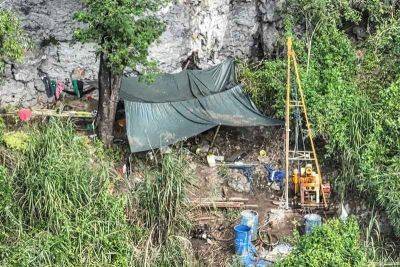Profits over planet and people? Green, indigenous groups oppose charter change
MANILA, Philippines — Amending the Constitution to loosen restrictions on foreign investments could heighten the risk of environmental degradation and pose a greater threat to local communities, especially indigenous peoples, groups have warned.
The government is pushing to propose amendments to the economic provisions of the 1987 Constitution, with President Ferdinand Marcos Jr. saying the charter “was not written for a globalized world.”
The Constitution limits the stake of foreign nationals and corporations in businesses at 40%.
The Philippines, however, has passed several laws that opened up the economy to the world without altering the charter such as the Public Services Act and Foreign Investment Act.
“We have to adjust so that we can increase the economic activity in the Philippines, we can attract more foreign investors,” he said in an interview with GMA News in January.
The push for amendments has sparked fears among environmental and indigenous groups that relaxing restrictions on foreign investments will hurt the environment and local communities.
“It renders the whole nation vulnerable to the destructive exploitation by foreign firms, whose primary motivation is profit over environmental protection and people’s welfare,” said Jaybee Garganera, national coordinator of Alyansa Tigil Mina (ATM).
ATM is one of the members of a new coalition campaigning against the push for charter change.
ATM pointed out that amending the Constitution could lead to an expansion of the extractive industries, particularly mining.
“The likely result would be flattened mountains, razed forests, choked rivers, ghost towns, and exacerbated impacts of climate change,” Garganera said, adding this would also lead to the loss of people’s livelihoods, health problems, and human rights violations.
A paper published by the Legal Rights and Natural Resources Center (LRC) in 2023 revealed that 60% of mineral deposits and mining projects in the Philippines are located in ancestral lands.
Mining is also linked to killings of environmental defenders, with rights organization Global Witness reporting that one-third of land defenders killed in the Philippines since 2012 opposed







